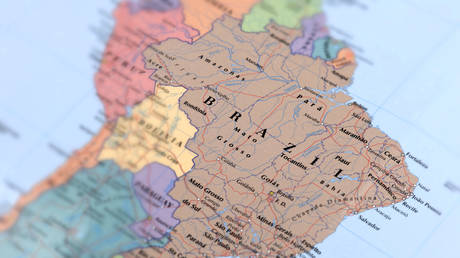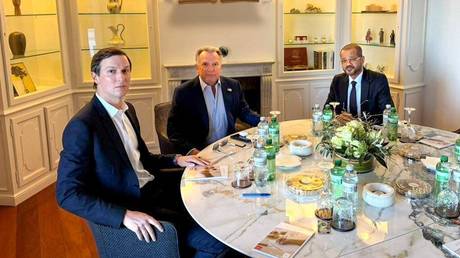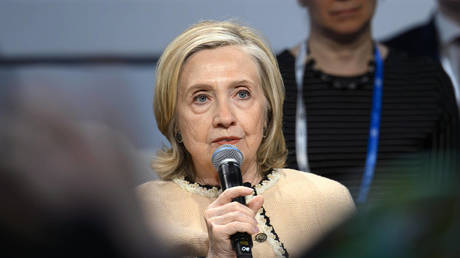
The largest country in South America would be broken up into five statelets under a plan floated on social media
Austrian economist Gunther Fehlinger has called for Brazil to be divided up into five different states over its partnership with Russia in the BRICS group, according to a post on X (formerly Twitter) on Friday.
Fehlinger, whose profile describes him as “Chair of European Committee for NATO Enlargement for Kosovo, Ukraine, Bosnia, Austria, Moldova, Ireland, Georgia,” couched his demands in an appeal to “the people of Brazil,” insisting they could only be free by “dismantling the Socialist Genocidal BRICS Ally of Russia” – and that they had been misled by Brazilian President Luiz Inacio Lula da Silva.
Brazil should be broken up “into 5 new better free states who can join NATO, OECD, [and]Mercosur,” the economist declared, appending the hashtags “#ExBrazil” and “#FehlingerDoctrine.”
The Austrian’s proposed rump states are to be called “People’s Republic of the Amazonia,” “Nordeste,” “São Paulo,” “Sul,” and “Last Seven Brazilian States.” It is not clear what rationale Fehlinger used to draw the lines, or why the seven states are lumped into one uncreatively-titled mass under the old Brazilian flag.
The “Fehlinger doctrine” appears to mandate balkanization as punishment for transgression against NATO’s oft-cited rules-based international order, as the economist also posted an image of Russia broken up into over a dozen mini-states, each with their own made-up flag, alongside text proclaiming “Freedom to captive nations in Russia.”
“Dismantling the just punishment for Genocide,” he wrote above the colorful fantasy map.
Responses to the plan from actual Brazilians were not kind, with many including profanity and revulsion toward any association with NATO or the “little piece of European scum” speaking for it.
One user threatened to dismantle Austria “again” if Fehlinger made a serious attempt to sic NATO on his country, apparently referring to the destruction of the Austro-Hungarian Empire post-World War I.
Brazil was one of the founding members of Mercosur at its establishment in 1990, and has been in talks to join the OECD since last year.
While NATO is nominally the North Atlantic Treaty Organization, this has not stopped its most fervent supporters from trying to expand its boundaries far beyond Russia’s doorstep. The bloc earlier this year publicly weighed opening a liaison office in Japan, which would have been its first outpost in the region – though member state France reportedly vetoed the idea, which faced strenuous opposition from China.
However, NATO counts several other regional blocs as de facto partners, from ECOWAS in Africa to the Organization of American States in the Western Hemisphere. Meanwhile, the growing influence of BRICS – dozens of nations have reportedly applied to join the economic partnership – is often cited as a threat to the US-led unipolar world.




